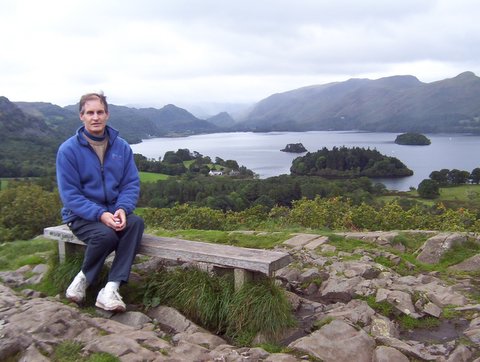|
THE SCIENCE OF CONSCIOUSNESS April 25-30, 2016 - Tucson Pre-Conference Workshop Tuesday, April 26, 9 am-1 pm
Complexity and Consciousness
Alex Hankey M.A. (Cantab.) PhD (M.I.T.)
The workshop on Complexity and Consciousness will present the theory proposed in my 2014 and 2015 papers (Cosmos and History, 2014; Prog Biophys Mol Biol, 2015). It will show how a completely new class of information theory emerges from complexity biology, and how the new kind of information satisfies all criteria so far proposed for a genuine theory of self-conscious awareness. The workshop will assume a basic familiarity with David Chalmers’ and Stuart Hameroff’s fundamental work in the field, but will provide all the concepts in complexity biology required to develop a full explanation of the new theory. The workshop will also include a vision of further developments that may be achieved from the new approach to encourage others to become active in this potentially rich new field. In more detail, the four lectures will start with an overview explaining in outline how complexity concepts point to new aspects of biological regulation with implications for our understanding of life itself. Emphasis will be on the role of instability as the preferred locus of control in all organisms, and how this alters our understanding of life itself, and permits a fundamental distinction between biological and mechanical systems. All criteria for conscious experience and conditions it should satisfy will be briefly laid out in the first talk, together with a picture of how the workshop will develop the new approach. The second talk will focus on details of the kind of information required by the instability condition in complexity. A careful derivation will be given of the completely new kind of non-reductive, ‘dual aspect’ information that results, with its dual aspect represented by an information loop internal to the information itself. The lecture will remain on a level of qualitative explanation that is intuitively accessible and satisfying, developed particularly for the presenter’s lectures at the Yoga University in Bangalore. In particular the information loop will be shown to provide the regulatory states concerned with various properties such as self-knowledge, traditional phenomenology’s ‘internal sense of time passing’, and the power to produce the Penrose – Hameroff Orchestrated Reduction (OR) of wave packets. The third talk will center round the high levels of internal correlations that these states contain. It will show why they are stable at room temperature, contrary to criticisms of original proposals for high internal correlations in states of experience formulated by Domash in the 1970’s, and Penrose in the 1980’s; also how the internal correlations can be used to define a new information measure for the theory; that the states form an integrated information theory with the possibility of a global workspace for all experience. The final sections will show how as cognitive states, the new information states support gestalt cognition, confirming the perspective originally outlined by Immanuel Kant, in his arguments for the necessity of a ‘self’. Out of this will come explanations for processes of meditation and their essential effortlessness, and experience of pure consciousness; and how the new kinds of cognitive state satisfy ancient cognitions, such as ‘I am That’, or that ‘consciousness takes on the form of the object of experience’. The final talk will concern experimental evidence for the validity of the new theory: the Herfyndahl distributions of results from human decision making; Sheldrake's account of direct communication of Gestalts in his book, Dogs that Know when their Owners are coming Home, for which the new information provides a fundamental theory; and implications of great antiquity for the encoding of gestalts. Their relationship to Rene Thom’s ‘Catastrophe Theory’ will be discussed, and how a comprehensive theory of biological morphogenesis might be developed. Also considered will be: an explanation for Brian Ford’s 2010 proposals for intelligence in single cells, and the light it sheds of the supposed ‘emergence of consciousness’; ‘embodiment’ and the important limitation of the new theory to biological organisms. Finally, time permitting we will indicate a simple way of extending quantum theory to fulfill Alfred North Whitehead’s insight that any theory of consciousness must be able to attribute some aspect of consciousness to every object in the universe. The new theory has important implications for the Chalmers-Shear ‘Hard Problem’. It reduces its domain, but doe not solve it. As Chalmers remarks, it cannot be solved. Consciousness has to be accepted as an aspect of creation as fundamental in its own way as mass and electric charge. Nevertheless, the new approach leads to certain important conclusions: Criticality loci of control can support experience information and so permit nervous systems to support non-reductive, dual aspect, holistic, “Experience Information" that fulfils the continuity of the internal sense of time passing of 19th and early 20th century phenomenology, and all requirements of 21st century phenomenology in the form of consciousness studies. Early Workshop Fees: TSC General Registrants $60 half day TSC Student Registrants $40 half day General Public - Workshop only $125 half day General Public - Student - Workshop only $75 half day
|
|
|||||||||||||
